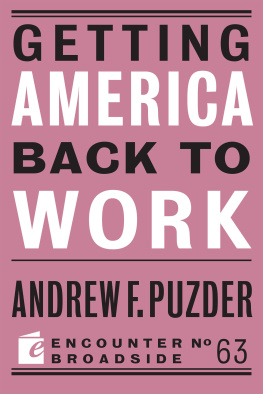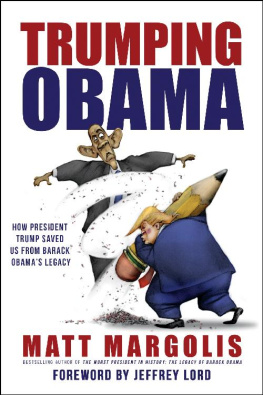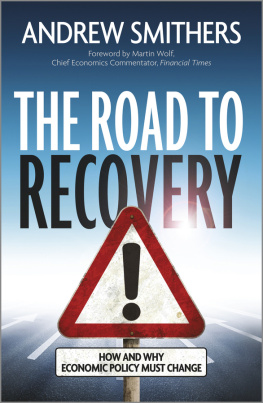
ENCOUNTER BROADSIDES
Inaugurated in the fall of 2009, Encounter Broadsides are a series of timely pamphlets and e-books from Encounter Books. Uniting an 18th century sense of public urgency and rhetorical wit (think The Federalist Papers, Common Sense) with 21st century technology and channels of distribution, Encounter Broadsides offer indispensable ammunition for intelligent debate on the critical issues of our time. Written with passion by some of our most authoritative authors, Encounter Broadsides make the case for ordered liberty and the institutions of democratic capitalism at a time when they are under siege from the resurgence of collectivist sentiment. Read them in a sitting and come away knowing the best we can hope for and the worst we must fear.
INTRODUCTION
T HE NOVEL CORONAVIRUS created both a humanitarian and an economic crisis. When it ends, we will mourn the lives lost, but we need not long mourn the economic costs. The economy will rebound, and with astounding speed, if capitalism is allowed to work its magic.
First and foremost, we need to help people and businesses through this crisis. But when the crisis is over the economy must reignite, and for that we need policies that encourage businesses to grow and hire, rather than policies that encourage government dependence and discourage work.
Thats the lesson of President Obamas tenure in office compared to President Trumps. The Obama administration discouraged growth by raising taxes and expanding the government through laws and regulations to an extent FDR would have envied. Businesses were reluctant to grow and create jobs. As a result, Obama presided over eight years of anemic growth and a stagnant labor market.
President Trump passed a tax cut for people and businesses and took a machete to the jungle of rules and regulations promulgated under Obama. The economy grew and the labor market flourished. In fact, before COVID-19 hit the United States, we had the strongest labor market in modern history.
That labor market strength was due to President Trumps business-friendly economic policies that allowed capitalism to work its genius. Perhaps as important was the signal his policies sent: The Obama era of government burden was at an end. Businesses could invest in a predictable environment, without fear that their own government would attack their success.
The same recipe that produced the strongest labor market in modern history can restore the wealth we lost because of the pandemic. If government helps people now, as it should, but otherwise gets out of the way and empowers the private sector, the impact of the virus will be a short-term hit from which we will recover rapidly. If the government keeps its heavy hand on the economy, we may never fully recover.
President Trump passed a tax cut for people and businesses and took a machete to the jungle of rules and regulations promulgated under Obama.
The most compassionate thing we can do for all Americans is restart the economy once we are no longer at risk. We need our stores, restaurants, and hotels open, our manufacturers manufacturing, and our consumers once again consuming. That requires incentivizing investors to invest, businesses to hire, and workers to work. Otherwise, we will end up with years of Obama-style stagnation what he called the new normal rather than the growth in jobs, wages, and prosperity that became the norm under President Trump.
Unfortunately, the Coronavirus crisis put the brakes on that growth and required increased government action to address its impact. As in any crisis, many individuals and families are suffering disproportionately and through no fault of their own. As a nation, we are committed to guarding people against disaster, and we should assist them generously. The government has moved on a bipartisan basis quickly to help these people.
American businesses are also suffering and in need of assistance.
For some, the governments financial assistance of various businesses harkens back to the bailouts following the Great Recession. But it is important to keep in mind that, unlike the Great Depression, the Savings and Loan crisis of the late 1980s, the Tech Bubble of 2000, or the 2007 real estate bubble that led to the Great Recession, the current economic crisis was not due to speculation or excessive risk taking by businesses, investors, or our financial institutions. It was due to a government-driven economic shutdown in response to a global pandemic.
Americas business community is in serious trouble through no fault of its own. The assistance it receives is in no way a bailout. Rather, it is compensation for the government taking away its ability to operate. Very few businesses have sufficient cash on hand to withstand a months-long period of virtually no revenue, yet that is what the government is forcing businesses to do.
As a result, the government has properly moved in the direction of protecting both our businesses and the jobs they create with massive but short-term programs designed to address the lack of capital and financial liquidity during the crisis.
Treating the fight against the Coronavirus as an effort akin to war, both President Trump and Congress have effectively employed the tools available to government. Unfortunately, some Progressives are already arguing that our response to the Coronavirus proves the need for big government. As if the need for massive state intervention to address the pandemic justifies the Lefts entire collectivist belief system.
It doesnt.
Government is essential in any functioning capitalist economy to, among other things, protect property and contract rights, keep the peace, organize major infrastructure projects, provide for national defense, help those who cannot support themselves, and assist people and commerce in a disaster. A pandemic certainly qualifies as a disaster. However, to use one problem government should address as the basis for arguing that government is well suited to address every problem is sophistry, pure and simple.
Nonetheless, statists attempt to expand government in nearly every crisis not wishing to let a serious crisis go to waste as Obamas chief of staff Rahm Emanuel once famously stated. House Majority Whip James Clyburn (D-SC) echoed Emanuels statement by describing the Coronavirus crisis as a tremendous opportunity to restructure things to fit our vision. That vision is a post-pandemic socialist future in which the government, rather than the private sector, controls our economy.
But when it comes to growing the economy, big government policies have consistently proven inferior to policies that empower free markets. Just compare the prosperous capitalist economies in Singapore, Hong Kong, Taiwan, and South Korea with the destitute socialist economies in North Korea, Cuba, and Venezuela. The reality is that, in every corner of the world, free market economies have delivered far greater prosperity than government-run economies.
Contrary to what Progressives will tell you, Scandinavian nations like Denmark and Sweden are not exceptions to this rule. These nations have large safety nets, but they also have vital free markets. In fact the Heritage Foundations 2020 Index of Economic Freedom ranks Denmark the eighth and Sweden the twenty-second freest economies in the world out of the 180 it ranks. The United States ranks seventeenth.
You can argue about the costs of their expansive welfare systems and the point at which tax rates become so high as to penalize work, reduce individual initiative, and drive away investors. In fact, both Denmark and Sweden have been debating exactly those issues for years and reducing taxes and social welfare programs as a result.
Next page





